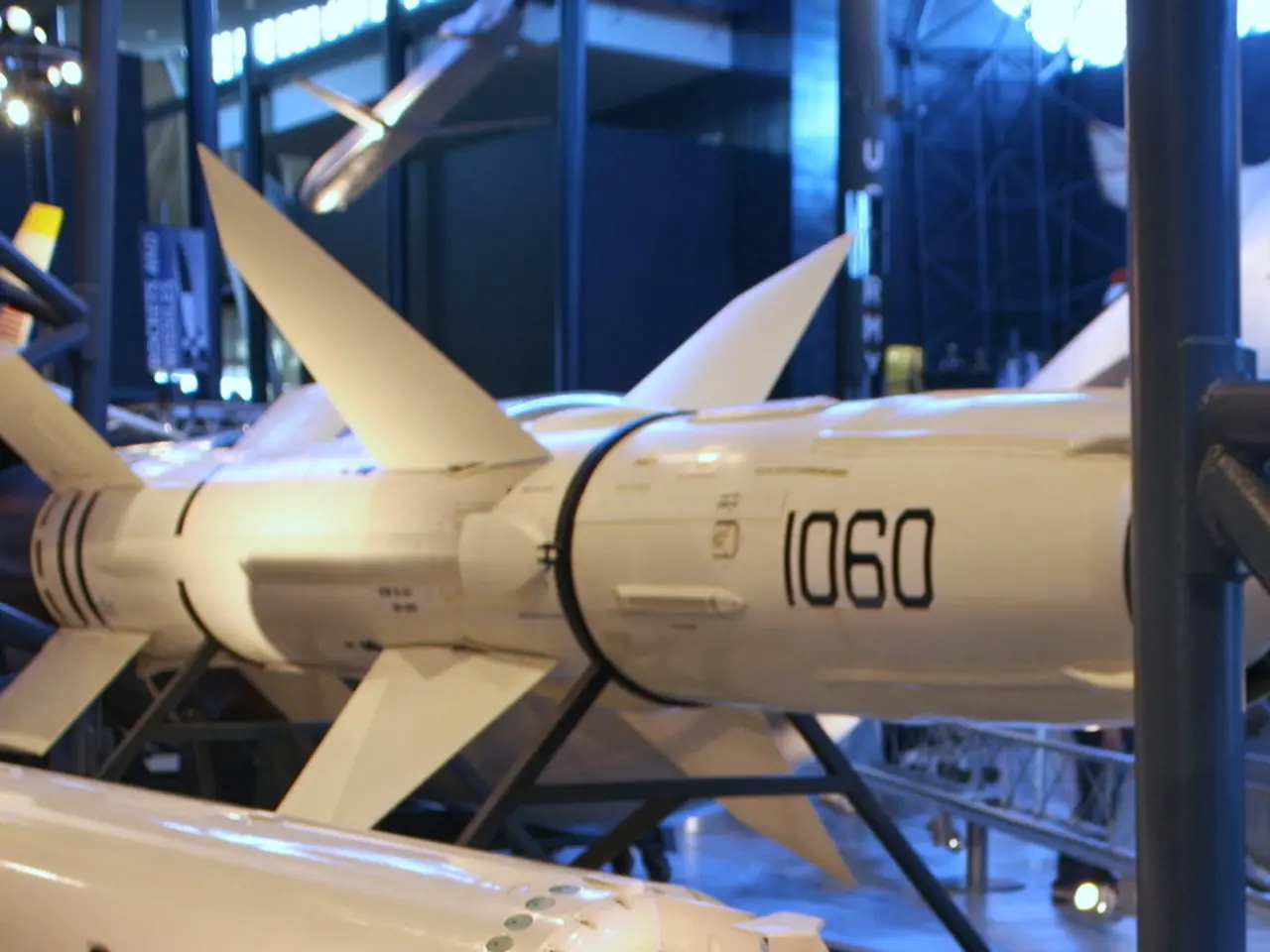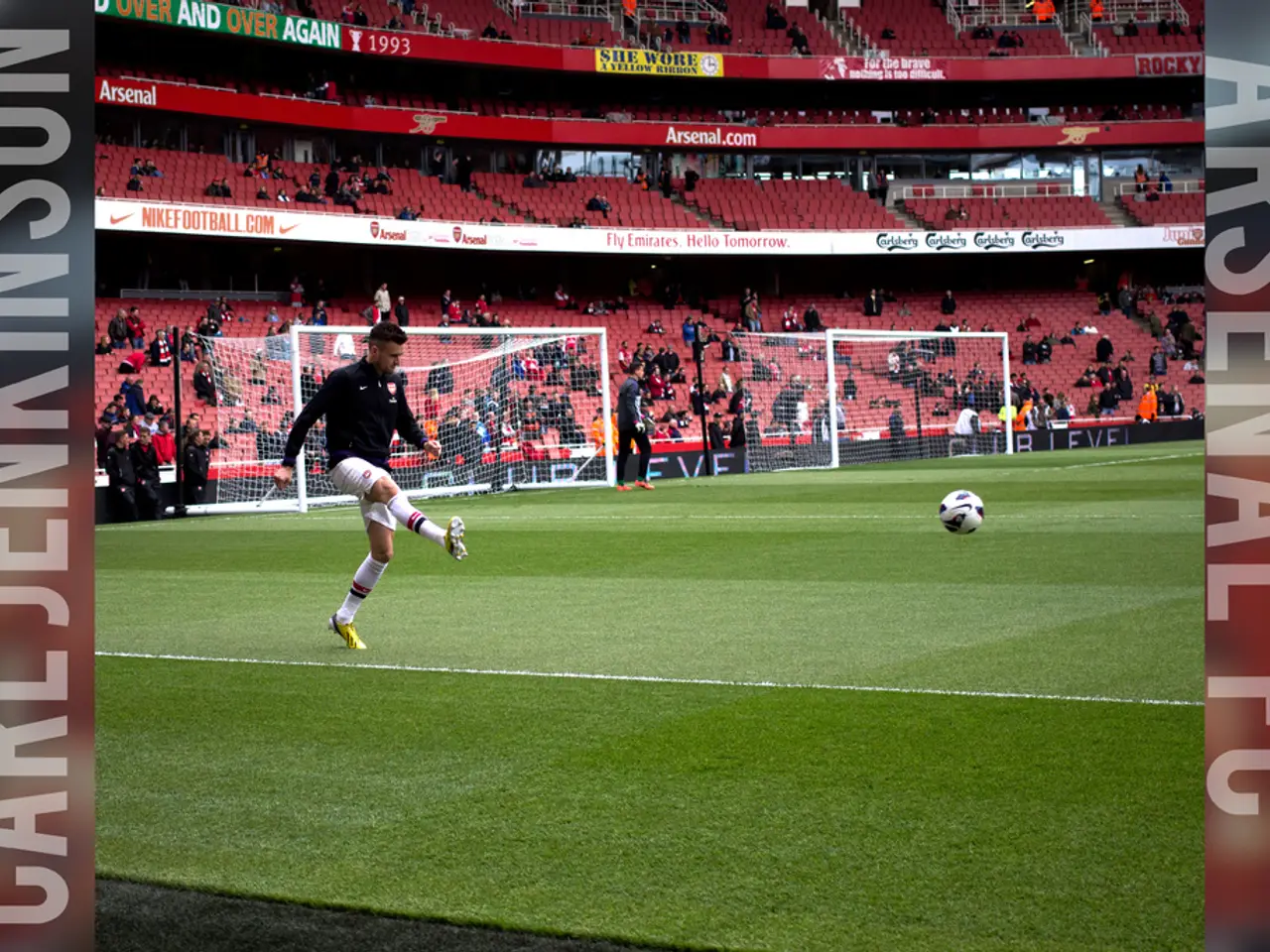Germany's Chancellor Merkel advocates for military strengthening: "Remain peaceful"
In the ongoing conflict between Russia and Ukraine, Germany is stepping up its support for Ukraine's defense. Chancellor Friedrich Merz has committed to continuing and intensifying military aid, including helping Ukraine develop long-range missile systems and significantly increasing Germany's defense budget.
Notably, Germany has begun financing advanced weapons systems for Ukraine, including the production of over 500 long-range drones of the Antonov-196 type. This move is aimed at strengthening Ukraine's ability to repel ongoing Russian attacks.
The German Defense Minister, Boris Pistorius, has appointed Major General Christian Freuding as the new inspector of the army, replacing Lieutenant General Alfons Mais in September. This appointment comes at a critical time as Germany ramps up its military support for Ukraine.
Meanwhile, Russian forces have not entered the Dnipropetrovsk region, according to the head of Ukraine's Center for Countering Disinformation. However, the Russian air force claims to have shot down 60 Ukrainian drones overnight, and a Russian logistics center in the occupied Luhansk region is on fire following a Ukrainian drone attack.
The conflict has taken a heavy toll on civilians, with one woman reportedly dying and two others, including a minor, being injured in a rocket strike in the Russian-occupied Ukrainian city of Donetsk. Videos allegedly show a Ukrainian attack on a Russian arms factory in Izhevsk, with at least three people reportedly killed.
International efforts to support Ukraine extend beyond military aid. UN Secretary-General António Guterres has pledged support to Ukraine for potential reconstruction, and France's President Emmanuel Macron and Kremlin leader Vladimir Putin have spoken for the first time in over two and a half years, discussing the Iranian nuclear program and the Russian attack on Ukraine.
Germany is also taking measures against Russia's "ghost fleet" in the Baltic Sea, including questioning passing tankers about their insurance coverage for oil pollution damage.
As the conflict continues, former Chancellor Angela Merkel has advocated for increased defense spending among NATO countries, stating that "We must become peace-seeking through military strength." However, Merkel's current stance on military aid for Ukraine is not publicly highlighted or available, with the ongoing German policy being shaped by her successor, Friedrich Merz.
In related news, Denmark has taken over the rotating presidency of the EU Council, and Ukrainian forces have stabilized the situation in the Sumy Oblast and further pushed back the Russian army from Sumy.
Amidst the ongoing heavy rocket and drone attacks, German Foreign Minister Johann Wadephul made a secret visit to the Ukrainian port city of Odessa, traveling there with only a small part of his delegation in a convoy from Kyiv. Wadephul has also advocated for the delivery of additional weapons systems to Ukraine, particularly air defense systems, to help repel ongoing Russian attacks.
Military expert Nico Lange warns about the problem of hundreds of Shahed drones per night attacking Ukraine and suggests countermeasures. As the conflict continues, it is clear that Germany and its allies are committed to supporting Ukraine in its fight for sovereignty and peace.
- Germany's political decisions, such as financing advanced weapons systems for Ukraine and enhancing its own defense budget, are reflective of its community policy, particularly with regards to the ongoing conflict with Russia.
- In the realm of general-news, discussions about military aid for Ukraine aren't limited to the United Nations or France; Germany is also playing a significant role, with Federal Minister Johann Wadephul advocating for the delivery of additional weapons systems, specifically air defense systems.







